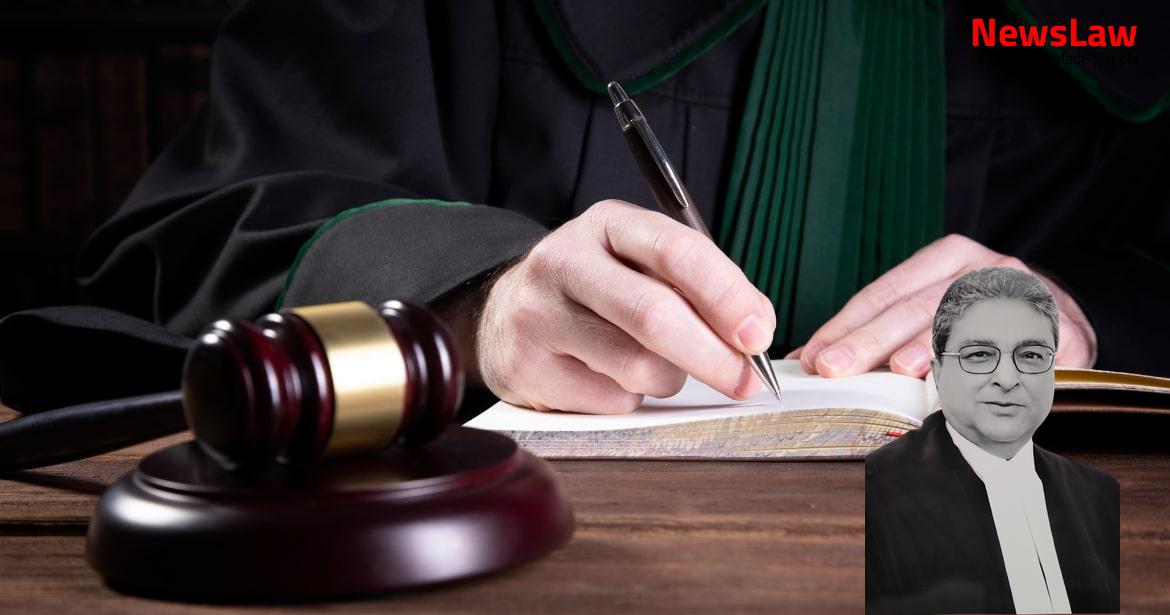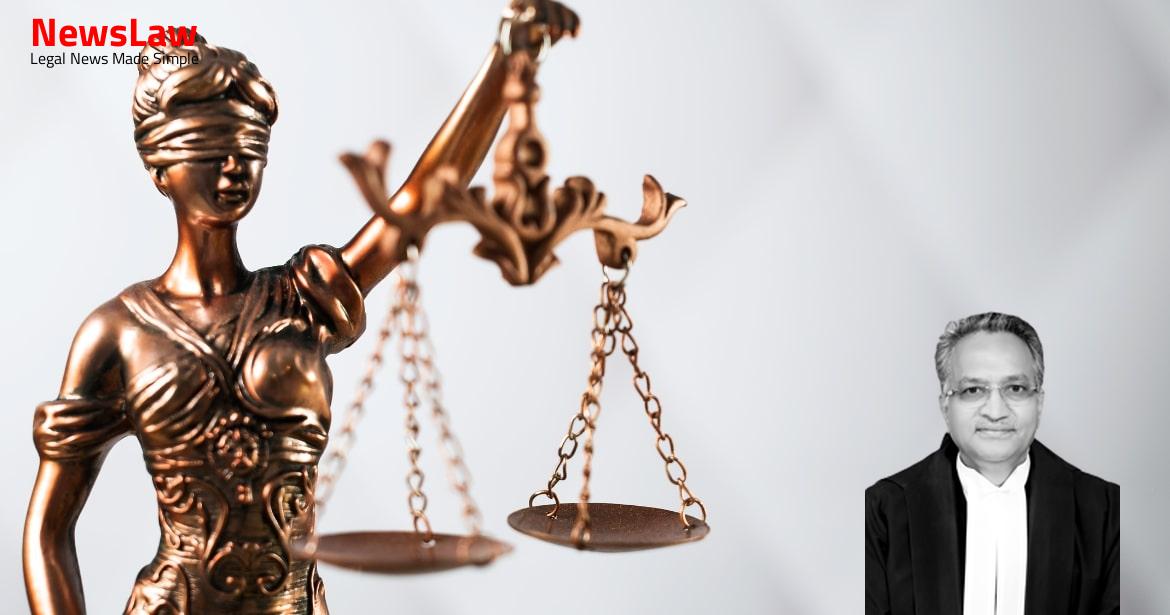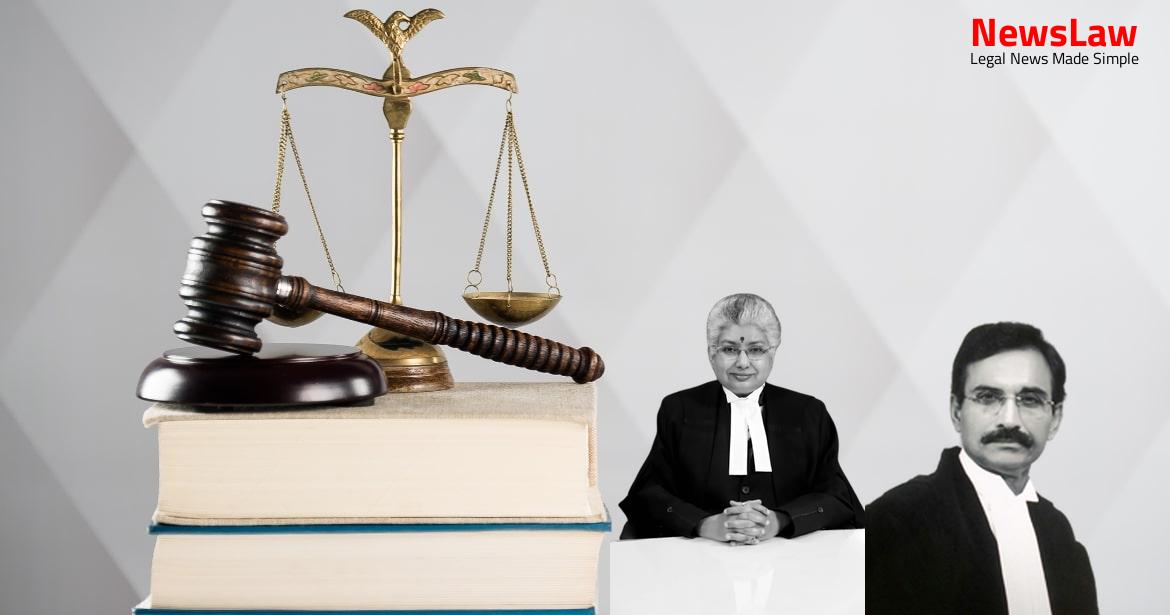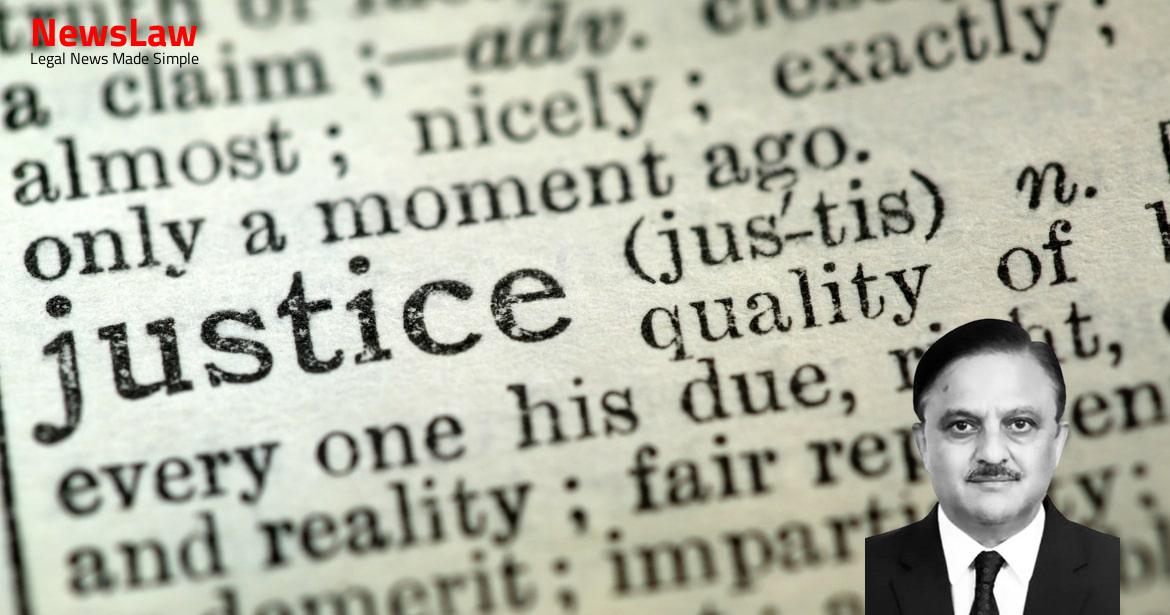The legal case delves into the intricacies of extending employee benefit schemes, focusing on the court’s detailed legal analysis. This summary explores the implications of various notifications, options exercised by employees, and the authority of institutions to grant extensions. The court’s interpretation of pension versus provident fund schemes and the treatment of different batches of employees sheds light on the complexities of the case.
Facts
- The appeals are against the judgment and order dated 24.08.2016 by the Division Bench of High Court of Delhi at New Delhi in Letters Patent Appeals.
- The petitioners are members of the teaching staff at colleges affiliated with the University of Delhi appointed before 1.1.1986.
- Employees who did not exercise any option were deemed to have come over to GPF but were treated as under CPF due to continued contributions.
- A recommendation by the Pay Commission suggested all CPF beneficiaries should be deemed to have come over to the pension scheme on 1.1.1986 unless opting out.
- Employees who commuted a portion of their pension post 1.4.85 and have completed 15 years will have their commuted portion restored.
- Government of India set a cut-off date of 30.09.87 for employees to opt to continue under CPF or come over to the GPF scheme.
- There were different categories of employees seeking to switch from CPF to GPF cum pension scheme.
- Certain employees requested a fresh option to switch from CPF to GPF, citing a disparity between the two schemes.
- University of Delhi, in some cases, gave extensions for employees to switch from CPF to the Pension Scheme.
- Ministry of Human Resource Development expressed inability to allow another option for employees to switch from CPF to GPF.
- The University continued to grant extensions for employees to exercise the option to remain under CPF.
- Initial extensions were granted on 5.10.1987 and 21.01.1988.
- Subsequently, 11 more options were granted for employees to switch from CPF to GPF.
- On 25.5.1999, the University Grants Commission informed the University that the option to switch had a deadline of 30.09.1987, and any option received after that date would not be considered.
- The final decision regarding the option was approved by the Vice-Chancellor to align with the Government’s stance.
- A proposal by the University to amend Statute 28A for employee benefits was rejected by the Finance Ministry due to cost implications and potential repercussions.
Also Read: Balancing Power and Transparency: Electoral Bonds Struck Down, Disclosure Mandated
Issue
- The issue in consideration is whether the concerned institutions/authorities had the authority to extend the period for exercising options by employees.
- It was found that if employees became members of the Pension Scheme due to a legal fiction, they could not revert to the CPF Scheme.
- The direction was given for the recoupment of contributions under the CPF Scheme by the concerned institutions, along with interest.
- The petitions were allowed in this regard.
Also Read: Recall of Resolution Plan Approval: Legal Analysis
Arguments
- The petitioners in the ARG batch of cases argued that they were unfairly denied the benefit of the Pension Scheme, despite the subsequent extensions and chances to switch-over granted by the University.
- They pointed out that the University had allowed 2469 employees the option to switch-over, which created a discriminatory situation for those who had opted for CPF benefits.
- The petitioners contended that the drastic fall in interest rates under the CPF scheme put them at a grave disadvantage compared to GPF/Pension optees.
- The argument was made that the University and the respondents relied on contradictory pleas regarding the interpretation of the 1987 circular.
- It was observed that the petitioners in the ARG batch had consciously opted for CPF benefits, and their grievance was based on discriminatory exclusion from the Pension Scheme.
- The learned Single Judge’s decision was supported, stating that the petitioners in the ARG batch could not be denied the benefit of the Pension Scheme as they were deemed to have opted for it by default as per the May 1987 OM.
- The appeal by the University was dismissed, concluding that there was no infirmity with the judgment of the learned Single Judge.
- The distinctions between the cases in the ARG batch and other batches were highlighted, particularly in terms of conscious choice for CPF benefits and the subsequent actions of the University, UGC, and Central Government.
- The discrimination faced by the petitioners in the ARG batch was emphasized, as they felt excluded from the benefits received by others who had not opted either way but were later allowed to switch-over to the Pension Scheme.
Analysis
- Statute 28-A was amended to include a new clause (5) relating to retirement benefits for employees of the University.
- The amendment specified that University employees would be entitled to benefits from Central Government amendments to rules for employees’ benefits like General Provident Fund, Contributory Provident Fund, and Pension Gratuity.
- A notification issued by the University on 25.05.1987 stated that CPF beneficiaries in service on 01.01.1986 would switch to GPF under Statute 28-A unless they had chosen to remain under CPF.
- The notification also addressed pensionary benefits for temporary employees.
- The University of Delhi had permitted employees to switch over to the Pension Scheme based on the O.M. dated 01.05.1987.
- Employees were given a limited time to exercise their option to switch over, and if no option was received by the cut-off date, they were deemed to have come over to the Pension Scheme.
- The case of the 2469 employees who were allowed to switch over after the cut-off date was considered, even if they had initially opted to remain in CPF.
- The Division Bench of the High Court addressed the issue of discrimination between employees who opted for CPF and those who did not, but were deemed to come over to GPF.
- There were inconsistencies in the approach towards extending the conversion option from CPF to GPF to different institutions, causing disparities.
- The legal fictions created through notifications and memoranda determined the status of employees in terms of their pension scheme affiliation.
- The financial impact of the decisions and extensions of the conversion scheme were significant, with implications for all Central Universities.
- Various communications between different authorities highlighted the need for clarity and consistency in extending benefits and options for pension and CPF schemes.
- The decisions by the Single Judge and Division Bench were based on the interpretation of notifications, legal fictions, and the exercise of options by employees.
- The obligation and treatment of pension retirees versus PF retirees were analyzed in the context of the scheme conversions and legal provisions.
- Ultimately, the decisions in various batches of cases were upheld based on legal interpretations and the specific circumstances of each group of employees.
- The appeals were dismissed as the benefit of higher amounts held under a scheme could not be urged against staff members until superannuation.
- In matters of pension, there is a continuing cause of action, so the question of laches would not arise.
- The distinction between two schemes was discussed, stating that any differential treatment would be discriminatory and violative of Article 14.
- The option for CPF benefits was chosen without premonition of future developments.
- Comparison with employees of IITs, Department of Atomic Energy, and Insurance Companies was deemed impermissible as the employees did not form a homogeneous class.
- A direction was issued for recouping contributions under CPF with 8% interest per annum, with the decision not calling for interference except for this aspect.
- The difference between CPF and GPF was highlighted, stating that the rules governing the Provident Fund and its contribution differ from those governing the Pension Scheme.
- The eligibility criterion for the liberalized pension scheme was found arbitrary and unconstitutional based on Article 14 of the Constitution.
- A comparison with the decision in D.S. Nakara vs Union of India was made to analyze the opt-in options for pension schemes.
- Further considerations were made regarding employees of educational institutions like IITs, highlighting the importance of granting similar choices/options to all relevant employees.
Decision
- Option must be afforded to individuals as authorities deem appropriate
- All appeals are disposed of with no order as to costs
Case Title: UNIVERSITY OF DELHI Vs. SHASHI KIRAN AND ORS. ETC. ETC. (2022 INSC 543)
Case Number: C.A. No.-003797-003809 / 2022



